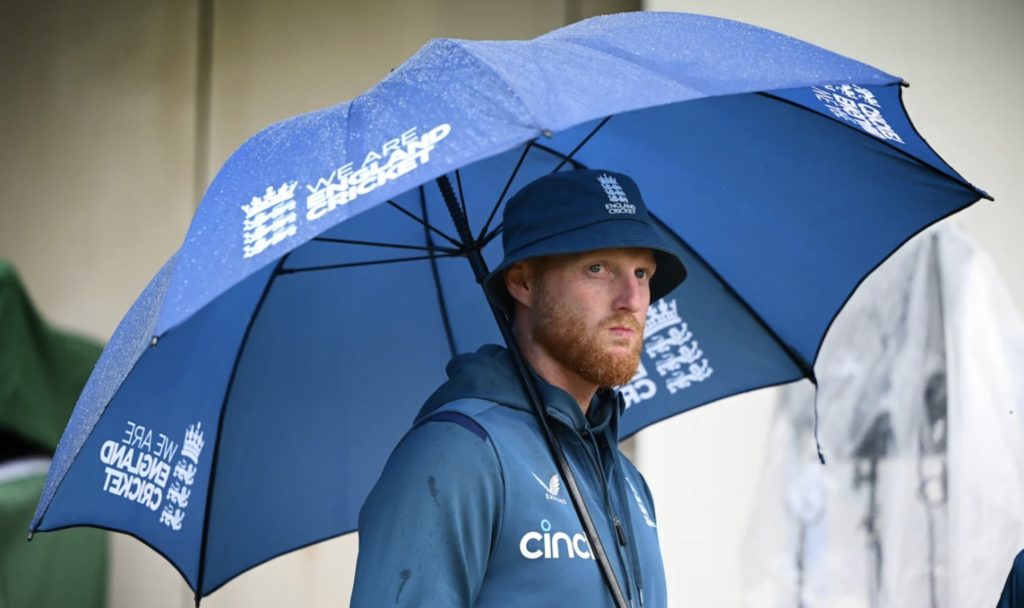Telegraph chief sports writer Oliver Brown says more should have been done to try complete the fourth Ashes Test in Manchester.
No play was possible on Sunday’s final day due to rain, with the resultant draw seeing Australia retain the Ashes. Only 30 overs play had been possible on Saturday’s fourth day.
Australia were 214-5 in their second innings, still 61 runs behind England’s first-innings 592.
An England victory at Old Trafford would have levelled the series at 2-2 and set up a thrilling finale at The Oval.
Brown said the “truly pitiful anti-climax” on Sunday was owed to “the utter inflexibility of the game’s authorities in adapting to the circumstances” as much as “an act of nature”.
He wrote:
With the Ashes on the line, this was one occasion where every over, indeed every ball mattered. So why keep the traditional start time of 11am? Why not bring it forward to 10.30am, as happened in the World Test Championship final at the Oval just six weeks ago? Why not even earlier?
In Manchester in late July, the sun rises around 5.10am and sets at 9.20pm. At this very ground on July 28, 1971, a one-day match between Lancashire and Gloucestershire ended at almost 9pm, without floodlights. When David Lloyd, the home side’s opening batsman, raised the issue of fading light with the officials, umpire Arthur Jepson pointed skywards and asked: “What’s that up there?” “The moon,” a befuddled Lloyd replied. “Well, how far do you want to see then?” Jepson huffed.
Evidently, common sense prevailed then. Fast-forward 52 years and there is no such margin for compromise, no such readiness to tweak with the time-honoured rhythms of an English day at the cricket. On day four, everybody drifted around until 2.45pm watching the downpours. But no sooner was there an interlude for a couple of hours’ play than the players were summoned back to the hutch for afternoon tea. And sure enough, the mizzle returned: not enough to stop playing, but too much to start again. You can deny an Englishman his Ashes victory, it seems, but do not even think about depriving him of his cakes and crustless sandwiches.
It made even the equable Joe Root, who had just prised out centurion Marnus Labuschagne, want to scream. “It doesn’t get dark here in England until 10pm in the summer, so why can’t we just play until we bowl the overs?” he asked. “At every opportunity, at every stage, you should be looking for ways to get the Test on. We batted in worse conditions at Edgbaston. You just want consistency.”
Good luck finding any consistent thread from cricket’s administrators, a breed defined primarily by their intransigence. One key question arising from this dismal anti-climax is why no reserve day had been planned for a Test of this magnitude. For both WTC finals to date, the International Cricket Council made sure that a sixth day was kept on standby so that a draw could be averted. Why not for this Ashes-defining fixture?







